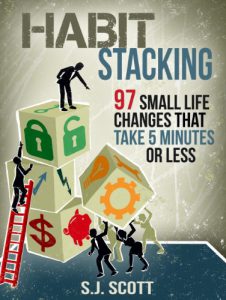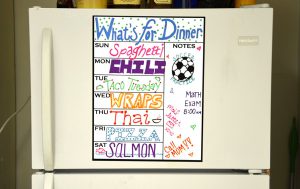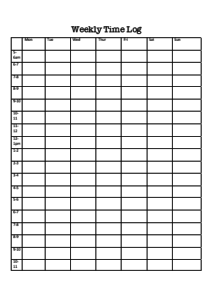12 Ways to Manage Stress- How to not go off the deep end
Can I get an amen for any stressed freelancers out there? No? That’s ok. We’re all looking for ways to lower our stress levels, and 95% of us (made up statistic) don’t follow through on them, myself included. The biggest reason that most of us don’t prioritize our health is that creating healthy habits and sticking to them is harder than not doing it. Plain and simple. So, I’m going to bring you 10 ways to manage stress levels that should be “fairly” easy to stick to.
12 Ways to Manage Stress
Read a book (with pages)
I know that if you’re younger than 25, you might not understand what I mean by pages, so a quick history lesson. Books used to be made from trees, and you used to have to physically turn from one page to another. Ask your parents.
Anyways, a study in 2009 at the University of Sussex found that reading can reduce stress by up to 68%. It actually outperformed methods like listening to music and drinking tea (although both help). Reading immerses every facet of your mind that you literally forget to be stressed. Our minds and bodies were not meant to be in fight-or-flight mode 16 hours of the day. We need to forget and think about other things.

Reading checks all the boxes. That study also mentioned that using a physical book gave readers a sense of accomplishment as you can easily feel and see that you’re achieving something, even if it’s only a chapter at a time. With e-readers, if that little bar on the bottom moves from 15-16%, it doesn’t do much for your psyche.
Dig out those old boxes from the garage, dust off an old favorite and take 20 minutes a day to unplug your brain and start off on the right foot with my 10 ways to manage stress levels.
Create a habit stack
 Habit stacking is a term coined by S. J. Scott in his book: Habit Stacking: 97 Small Life Changes That Take Five Minutes or Less. It’s an incredibly simple concept but if done right can have profound effects on your life. Habit stacking is broken down like this:
Habit stacking is a term coined by S. J. Scott in his book: Habit Stacking: 97 Small Life Changes That Take Five Minutes or Less. It’s an incredibly simple concept but if done right can have profound effects on your life. Habit stacking is broken down like this:
- There are things you do every day, called triggers (brushing your teeth, drinking a coffee, walking the dog, etc.)
- Anchor one new, very short action of fewer than 2 minutes, with that trigger
- Repeat every day
It’s slightly more complicated than those three steps, but you get the overall gist. An example of a habit stack that I’ve added to my daily routine is stretching.
Every day I make coffee, that’s my trigger. It takes around 2-3 minutes for my coffee to be ready. In that time, instead of looking at social media or my emails, I do 3 different stretches: Calves, hamstrings and hip flexors. I’m to the point now that if I don’t do them, I can tell something is off.
The trigger (making coffee) reminds me that I should do the stretching and a little accountability in the first few weeks goes a long way.
All the Routines, All the time
This idea can be tied in with #2, but I just wanted to touch on the importance of creating routines for yourself. Building your day around routines allows you to focus on what’s important. It also takes out the guesswork of what’s important. Having too many choices and decisions freak me out. Doing work triage is my least favorite thing of the day.

So, to battle that I’ve set specific time frames for things like social media, emails, writing a post, translating (insert your particular job), and searching for new clients/marketing.
Creating those routines and giving myself structure helps me to stay focused on exactly what it is I should be doing. Obviously, my schedules aren’t set in stone, but once again, just a little discipline will help you knock off what’s important in your day.
Create a food menu
Food and 10 ways to manage stress levels, what else could you want? This is the perfect way of taking the guesswork out of dinner. I don’t know about you but when I go into the kitchen to start making dinner, and I can’t decide, out come the snacks. I’m not talking an apple. I’m talking chips and Cheez-its (but only the big ones, there so much better… why is that?)
Anyhow, walking into your kitchen and knowing exactly what you’re going to make every day of the week will free you from having to make the game-time decision and also get rid of the guilt you feel after eating unhealthy snacks. It’s a win-win.

I love this little board: White Dry Erase Magnetic Calendar. 5 minutes every Sunday after dinner (habit stacking, boom!) and you can decide on your meals for the upcoming week.
A quick cat nap (my favorite tip of 10 Ways to Manage Stress Levels)
“Nature has not intended mankind to work from eight in the morning until midnight without that refreshment of blessed oblivion which, even if it only lasts twenty minutes, is sufficient to renew all the vital forces… Don’t think you will be doing less work because you sleep during the day. That’s a foolish notion held by people who have no imaginations. You will be able to accomplish more. You get two days in one — well, at least one and a half,” Winston Churchill.

Need I say more? If the increased productivity doesn’t make you less stressed than the “refreshment of blessed oblivion” will surely allow you to forget everything you have to do. If the man who helped defeat the Nazis, was named the #1 greatest Briton of all time and won the Nobel Peace prize in 1953 could find the time to nap, I think you can carve out 20 minutes.
Get some Vitamin D
“You are my sunshine, my only sunshine. You make me happy when skies are grey!”
The positive effects that sun has on your health are undeniable. I actually used this Infographic (which isn’t mine, but I sited it.) in my last article, How to Organize a Home Office, but I like it so much I had to bring it back. It really does a much better job of explaining the benefits than I ever could. Please, enjoy.
12 Ways to Manage Stress
7 Focus on your breath
For millenia people have been using meditation as breathing techniques as ways to manage stress. This tactic of taking deep full breaths is similar to that of reading. The idea is for you to forget about and “unplug” from daily stressors. If you’re focusing on your breath, then you’re not focusing on the 38 other things that are tugging at your attention strings.

There’s a method I’ve stumbled across by a Dr. Andrew Weil, and it’s called the 4-7-8 Method. It goes a little like this:
- With the tip of your tongue placed on the tissue behind your upper teeth…
- Inhale quietly through your nose for a count of FOUR
- Hold your breath for a count of SEVEN
- Loudly exhale through your mouth for a count of EIGHT
- That’s one breath, repeat for a total of 4 breaths.
At first, you may feel slightly uncomfortable, but I’ve been doing it twice a day for about two weeks, and it’s something I’ve started looking forward to. Even a short 1-minute break like this where I’m not thinking about the clients who haven’t paid me has helped me to stay centered. If you’re interested in a great online Beginner’s course check out my review on Live and Dare’s Beginner’s meditation course. (it’s how I created a meditation habit)
8 Sweat it out
You know you should exercise, I know you should exercise, even the 8-year boy down the street knows you should exercise. Take a walk, get some fresh air, use the buddy system if you have to. The endorphins from exercise is one of the best ways to manage stress.
If you haven’t prioritized exercise in your life yet, throwing more facts about the immense benefits and despite how it might be the most effective of the 10 ways to manage stress levels obviously, I won’t convince you, so I won’t do that. However, I will share with you my goal of exercise though because it’s my blog and I feel like it.

The #1 goal I have with my exercise routine (besides looking good at the beach) is to not hurt. I don’t want to wake up in pain or sweat walking up the steps. I want to have the energy and stamina to live a full life, the way I want to live it.
Ok, I’m done talking about exercise, you can tune back in.
9 Have a notepad by your bed
If you’ve never laid awake at night thinking about what you need to get done the next day or that perfect response to the jerk in the check-out line than you’re either superhuman or 12 years old. Either way, congratulations.
One easy fix to that late-night insomnia is to place a notepad (and pen) on your nightstand, so you have it on hand for when that million-dollar idea hits you at 2 AM. A study from Baylor University found that those subjects who wrote down to-do lists for the following day fell asleep faster than those who didn’t.

Michael K. Scullin, Ph.D., director of Baylor’s Sleep Neuroscience and Cognition Laboratory says “Most people just cycle through their to-do lists in their heads, and so we wanted to explore whether the act of writing them down could counteract nighttime difficulties with falling asleep.”
Improved sleep = more energy = less stress
10 Focus on one thing at a time
This has been a bit of an underlying theme in this 12 ways to manage stress article, but it really is the fundamental issue with why we’re stressed. I mentioned at the beginning of the article that our bodies are not made to be release stress hormones throughout the day. Stress was made as a natural fight-or-flight response to save our lives from actual lions.

Fortunately, that’s not something most of us have to worry about anymore. On the other hand, our ancestors didn’t have to worry about traffic, soccer practice, deadlines, schedules, rent, etc. All of these things in our brain cause a similar response to those lions. Obviously not to that extreme but nowadays we’re basically leaking stress hormones throughout the entire day.
Focusing on one thing and centering your attention on it will help to get rid of all the background noise and triggers that lead you to stress out. This is that my 10 ways to manage stress levels are all about.
11 Organization tools
Imagine, you walk into your office and it’s a disaster, paper strewn everywhere, things on the ground, old coffee mugs and a half-eaten croissant. How would you feel? Relaxed? Ready to work? I think not. Now, imagine you walk into your office and it’s spotless, how does that change your mindset?

It’s really not difficult to imagine but if you’re organized, you can easily find your documents and know exactly where to look when your searching for something that your productivity goes up, stress goes down and your whole outlook on work changes for the better.
My favorite organization tool right now is G suite by Google. It has everything you need in one place and will make your life, as a small business owner, much simpler.
Check out what G suite can offer you at G Suite by Google
12 Know How You Spend Your Time
Have you ever thought to yourself? “There’s just not enough time in the day to do everything I want to do”. If you have, you’re most definitely not alone and it’s an incredibly stressful thing when you think there’s too much to do.
However, I think that you might be surprised by the amount of time you actually waste throughout your day. Let’s take a quick look at the numbers.
Time spent per week:
- 40 working
- 56 sleeping
- 16 cooking/eating

Those are the basics that we all must do to survive. Obviously, they’re averages as you might spend more time working, less time sleeping or a combo of the three. Let’s just take those numbers for now. They add up to 112 hours. Do you know how many hours there are in a week? 168.
You’re left with 55 hours to do focus on what’s important to you. Whether it be your family, friendships, hobbies, whichever. Do you know how you spend those 55 hours though? You might be surprised by the amount of time you could save just by knowing where all your time goes. If you’re interested, you can download a free weekly time log
Download a Free Weekly Time Log
Also check out my other ways to manage stress and improve your time management: Time Management Tips to Reduce Stress
Have you tried any of these 10 ways to manage stress levels? What’s your favorite trick?

12 Replies to “12 Ways to Manage Stress- How to not go off the deep end”
Great article! I love the “habit stack”, using that time that would normally be wasted (you can always check your email or social media after the coffee is brewed) to do something healthful and stress reducing is a great idea. And repetition is the key, once it becomes part of my routine I’ll miss it if I don’t do it. I certainly don’t forget to brush my teeth in the morning! I also like the food planning, do you have any thoughts on actually preparing a weeks worth of food in advance? It sounds like it would help, but I’m not sure it would be practical?
Hey David,
There are a lot of 5-10 minute chunks throughout our days that are “wasted” time. Doing 1 or 2 positive things during that time could have monumental changes on your life. You’re absolutely right that repetition is key.
As for preparing a weeks’ worth of food, in theory, it sounds great! You could cook in bulk, wouldn’t have to worry about not having ingredients, no decisions to make on what you’re going to eat. However, as you mentioned, practicality might be another issue. Does anyone really want to eat 5-day old pasta or chicken breasts that have been in the freezer? It could be great for those people who don’t mind something like that.
Good luck and if you do it, let me know how it goes!
Hi Andrew!
I was very intrigued regarding that 2009 study at the University of Sussex that found that reading can reduce stress by up to 68%. Wow! I did not know there were hard stats about that, but I feel really vindicated about stressing the benefits of reading. I am going to look up that study and pass this around!
Steve
Hey Steve,
I appreciate you taking the time to read and leave a comment. I’ve tried to find the source study but didn’t have much luck, all I could find was ‘galaxy stress research ‘ mindlab international sussex university (2009). It talks about results but it doesn’t look like Dr. Lewis actually published his data in any journals. You might have more luck than I did.
Let me know if you find anything! Best of luck!
I am not good in managing stress and I’m glad to have come to your site. I would like to try all the 10 ways and see how it goes. Can reading, get some Vitamin D, focus on my breath, sweat it out and have a notepad by the bed be considered into the create 1 habit stack?
Managing stress is a tough one for a lot of people. Usually a habit stack is very short actions (less than 5 minutes) for example, if you make yourself lunch every day, connect a habit that you would like to do (sitting and focusing on your breath). Before or after you make lunch, complete your new habit every day. Soon enough it will become a habit as well. Thanks for stopping by!
I am younger than 25, but, believe it or not, I know what pages are. However I do prefer reading on my phone. My phone is more portable so I have it at any time. I can read to destress anytime I need to. I use an app called Overdrive that allows me to check out ebooks from the library. It has page numbers at the bottom and everything. So you can still get a sense of accomplishment by finishing chapters.
It sounds like you’ve had a good upbringing if there are still paperbacks in your house and I’ll have to check out Overdrive and see what it’s all about. I do love page numbers! Thank you for stopping by!
I totally agree with creating a food menu. Just like you I tend to go into the kitchen and just cannot decide what to have. That dry erase board is the perfect idea and so simple too. I think it is a great idea to preplan your food choices for the week.Meditation is a great way to destress. Just take a moment and breathe.
Hey! My food plan has saved my on hundreds of occasions. I no longer walk into the kitchen and open all the doors and drawers to see what I “feel like eating”. It’s been great and I don’t have to decide what to buy when I go into the store. It really is the best way to eat. Thank you for stopping by!
Enjoying the read on the 12 ways to manage stress. I can concur to a few since I am doing it myself for quite sometime and it does work to reduce stress.
Reading a book, and yes, an actual book, is indeed helpful. to minimize stress I just love the smell of a book holding in my hands.
My personal challenges are not writing things down which do bother me and I do too many things at once, yes, some lack of focus.
Is there some sort of training to learn how to focus more on one thing at the time? I have read books about it in the past but I am also more of a person who learns more sufficiently by doing it. “Learning by doing” kind pf person.
Thanks for “waking” me up!
Hey!
The smell of books of so relaxing! I completely agree. The one thing that I’ve heard hundreds of people mention that has improved their focus is meditation. The main idea behind meditation (basic meditation) is learning to focus on your breath and not following your thought stream. It seems easy but if you’ve never done it I can guarantee after about 10 seconds you’ll be thinking about the witty thing you could’ve said to barista yesterday. If you’re interested check out Online beginners meditation course It’s where I got my start! Let me know if you have questions!